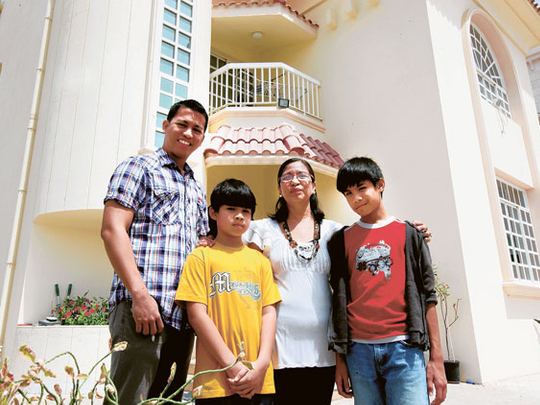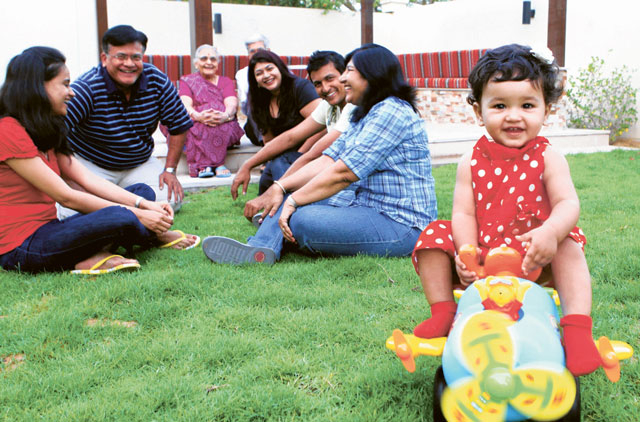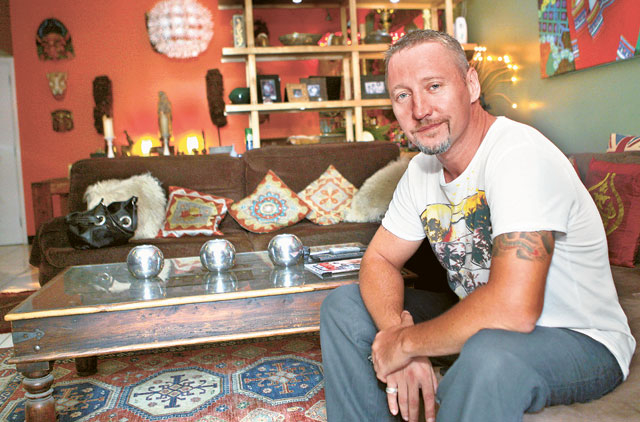
Dubai: You may know your officemate, classmate, boss, or business partner as they are part of your immediate social circle. But how about the people who literally live closest to you? Do you actually know your neighbours?
In an emirate where there are people from almost 200 countries, who speak hundreds of languages and come from different cultural backgrounds, it is no surprise to note that not knowing who lives next door has become the norm.
But this was not the case always. Back in the days before the discovery of oil and before expatriates came to the city, the local communities had a strong social bond.
"In the past, houses in the UAE were built close to each other, and thus families also interacted with each other closely. They relied on each other," sociologist Dr Rima Sabban told Gulf News.
"Women got together, talked, discussed and shared their problems. The children were raised by the whole neighbourhood. This was the way of life."
Attracting expatriates
After the discovery of oil, the city began to develop in stages. Expatriates began flocking to the city and initially started to live in areas like Jumeirah. "The post-oil [stage] where Dubai expanded its real estate spaces, set up free zones led to the laying out of a new Dubai wherein the concept of space development redefined neighbourhoods," Dr Sabban said.
As Dubai started to develop, people found themselves still living in clusters — but in gated communities. "They started building gated communities where families were separated by walls in the same compound," Dr Sabban said.
With more and more people coming into the country, and as the emirate developed, the disconnect between people living next to each other grew stronger.
Urbanisation to blame
"I think this is one of the results of urbanisation. It sometimes increases the disconnect between people. Increasingly, Dubai is becoming more of a work-oriented city, so the connect between neighbours is not as strong as before," Dr Sabban said.
Gautam Patel, an Indian businessman who arrived in Dubai in 1978, agrees. "I think social interaction has reduced compared to what it used to be."
Patel, who lives with his family in one of the gated communities in Dubai, said that he is good friends with his neighbours and regularly hosts and attends social functions with them. But he also concedes that due to the fast-paced life in the city social interaction between neighbours has been affected.
"Back in the 80s," he said, "there were three broad residential areas in the city. Life was simpler till the end of the 80s and even during the early 90s. People had the time to talk and meet with each other. Today, I think life is much more strenuous. Plus, the choice of accommodation has undergone a huge change," Patel said.
Another reason for the neighbourly disconnect, according to Dr Sabban, is that people have become more connected to their peers at the workplace rather than their neighbours. "We are connected to our jobs more than to our living space," she said. "We are becoming unhealthily busy."
The layout of a residential area may also be a factor in determining neighbourly relations.
Solia Ramos, a Filipino housewife who lives with her family in a villa in Umm Suqueim, said that since they knew no one in the neighbourhood, they seek their recreational moments with the facilities they have set up in their backyard.
"We have a large backyard and a relatively big house. We have our own pool and playground so the kids can play within the compound," Ramos said.
For British expatriate Robert Rye, who lives alone in his flat in Bur Dubai, what has curtailed his interaction with neighbours has been the changes in the nationality of the tenants.
"I've lived here for the past 10 years. The whole block used to be full of westerners," Rye, a landscape manager, said.
But when the recession hit, most of his neighbours moved out and were replaced by people from other nationalities.
"New communities have moved in. I don't know any of my neighbours anymore. I used to know 60 per cent of the people in this block, I now know 1 per cent," Rye said.
Internet plays a role
With the growth of the internet and popularity of social networks, a new sense of neighbourhood and social interactions have also emerged.
"Nowadays, [the reason] we don't need the neighbours is because there is a parallel neighbourhood that is getting built in cyberspace. They are building a new neighbourhood — youth communities, Twitter communities, Facebook communities," Dr Sabban said.
Whether it is space, structure of a house, cultural affinities, or plain lack of interest, Dr Sabban said social interaction among neighbours boils down to choice. It's a personal decision to take that first step to connect.
It's important to take the first step, she says. "But if you want it become functional, you have to move ahead. Don't stop at just saying ‘hi'. Take that second step and then the third," Dr Sabban suggests, adding that by doing this, you will find new ways of getting to know your neighbour.
Villa living doesn't promote camaraderie
The Ramoses live with their grandchildren in a villa in Umm Suqeim 3.
Solia Ramos and her family lived in a gated community in a first-class subdivision when they were in the Philippines in the 80s.
"We had a homeowners' association that handled all the concerns of the community. That made it possible for us to get to know each other," Ramos said.
"We lived there for 20 years. On special occasions like New Year celebrations, all of us would celebrate outside our homes. We'd exchange well wishes, food and watch fireworks together," Ramos said.
Moving to their villa in Umm Suqeim 3 was a big change.
"We do not know any of our neighbours here. Maybe just one, a fellow Filipino who travels with my husband to Abu Dhabi for work every day, but that's it," Ramos said.
Ramos said that even if they want to reach out to their neighbours, the cultural divide and a number of other factors get in the way.
Children bring neighbours together in gated communities
The Patels live in a villa in Meadows, Emirates Living. Gautam Patel is an Indian businessman who has lived in Dubai for 35 years. He hails from Mumbai, where he claims there is a "sense of family" in the neighbourhood.
"We grew up as a family. All the houses were open, I don't think we even had closed doors, except for nights, sometimes," Patel, who lived for 26 years in an apartment building with 50 other families before coming to Dubai, said.
"If you had difficulties, you didn't need to worry because your parents would go to your neighbours and they would help," Patel added.
When he moved to Dubai in 2004, Patel said that it was different at first. But he and his family eventually connected with their neighbours. Having children helps bridge relationships, he said.
"There are times when it is kids who get the parents together. If I take my granddaughter to the lake here, it's normal to bump into other parents who come toi greet with their children and the kids start mingling with each other. Automatically, you get to know the parents," Patel said.
Every week, he meets his neighbours for a meal or a party in order to interact with them.
Cultural differences hinder interaction
British expatriate Robert Rye lives alone in an apartment building in Golden Sands, Bur Dubai. He relocated to Dubai 10 years ago. And he has lived in the same flat since.
Interacting with neighbours is easy for Rye as he has always been a friendly person — a fact he attributes to his childhood. "I was brought up in London in a nice neighbourhood. I played in the streets with my neighbours. There was interaction between the adults: they went out together, people came around for dinner," Rye said. "Children played in each other's houses, on the streets, went for adventures in the parks. There was a lot of interaction in the whole community."
Rye said he saw the same friendly atmosphere in his building in Dubai. But when the credit crunch hit in 2008, many of his friends in the block moved out and were replaced by people from other communities.
Rye said social interaction among neighbours does not depend on the layout of the building or the neighbourhood — it depends on people's cultural backgrounds.
"I'm a friendly guy. Normally, if you walk down the block and you say hello to people, they just don't look [at you]," Rye said.










